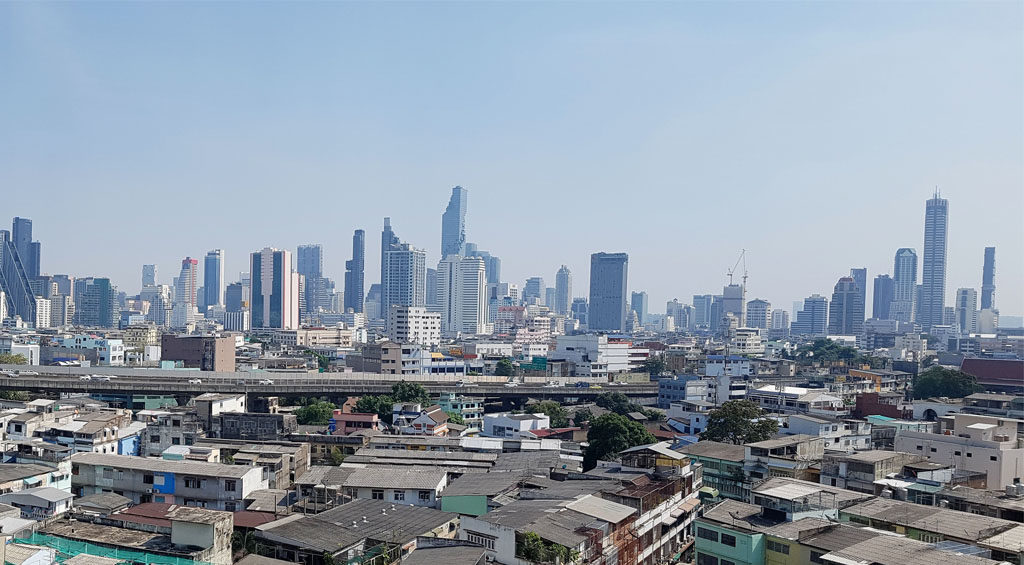14 May 3 Things To Remember When Buying Real Estate in Thailand
Many foreigners would consider buying real estate in Thailand after spending a few weeks or months in the country. There’s a reason why Thailand, especially its capital Bangkok, is one of the most travelled to destinations in the world. The Land of Smiles offers comfort and luxury without breaking the bank. Foreigners across the globe can’t wait for the day they’ll spend their retirement days in this tropical paradise.
Home to a rich culture, you can navigate ancient temples and palaces while simultaneously good food and lively parties. A short flight or bus ride to neighbouring Southeast Asian countries makes buying real estate in Bangkok worth it.
But Thailand is not all roses when it comes to foreign property ownership and real estate in general. Their rules can be eccentric, strict, and protectionist at times. Which is why it is important for expats or foreign retirees to have a clear understanding of the rules and regulations of buying real estate in Thailand.
Before deciding to purchase a Thailand property, take note of the following:
1. Foreign Land Ownership in Thailand
Foreigners can’t buy and own land in Thailand as per law. To buy land, you only have 2 options. First is to lease the land for 30 years. Most of the time, this only applies to foreigners who married a Thai citizen. The Thai citizen buys the land and enters a lease contract with a foreign spouse. To pursue this course, the deed must be accurate and that the land comes with an authentic title.
The second option would be to establish a Thai Limited Company. This option has its limits. As a foreigner, you’re entitled to only half or more than half of shares. 51 per cent of the company must be Thai owned (unless you’re a citizen of the United States, which entered into a full ownership treaty with Thailand). The Thai owners may sign over the company to you. However, you must notify the immigration office and they will continue to monitor your business operations.
It is difficult for foreigners to own landed properties like detached houses without help or partnership from a Thai national.
2. Buying a Condo in Thailand
Since foreign land ownership in Thailand can be quite challenging, many opt to buy a condo or an apartment instead. Compared to purchasing land, a foreigner can 100 per cent buy and own a unit if he so wishes. The process is easy and less complicated. A better way to own property in Thailand.
As per law, the 1979 Thailand Condominium Act states that foreigners can own 100 per cent of a condo or apartment unit wherever in the country. This is under the condition that 51 per cent of the units in the building are owned by Thai citizens. In other words, an apartment or condo building can sell 49 per cent of their units to non-Thai nationals.
FACT: approximately 20 per cent of condos in Bangkok are owned by foreigner investors, expats or residents.
Click here to view condos for sale in Thailand.
3. Buyer Awareness & Due Diligence
Buying property in Thailand may sound easy and hassle-free particularly if you’ve opted to buy a condo unit. However, note that research is everything. Always perform due diligence prior to buying. Know what’s going on in the Thai property market. This will ensure you’re getting your money’s worth and you made the right investment choice.
One important information to note is that property values in Bangkok have increased in the last 15 years. This is the reason why the government is adopting a ‘hands off’ approach. Rising property values have also paved the way to an overwhelming number of property developments, but resulted to a lack of regulatory oversight during condo constructions. In effect, despite rapid real estate developments, there are many sub-standard condos in the market.
Even as developers claim to have built ‘European Standard’ buildings, a quick tour of the site would immediately expose glaring flaws and short-cuts. Within five years since their construction, some of these condos experience structural issues such as leaks, clog-ups, smells and a lot more.
Buyers should always do a little leg work. Examine the site yourself and don’t just rely on a few pictures. Touch base with owners or agents and ask for their views. See what they think of the condo’s construction, maintenance, and overall quality. If need help formulating the right questions for property developers, ask help from a tried and tested legal agency. They may be able to offer sound advice and guide you throughout your real estate investment process.

